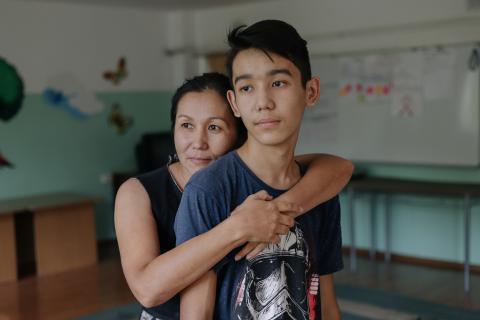I am busier now than ever before with new clients seeking help with anxiety issues due to unpredictability. But there is a natural level of unpredictability with co-parents in conflict that adds an additional layer of stress to these families. In our Advanced workshop for high-conflict parents, we try to teach participants how to maintain some sense of personal predictability to reduce stress in their co-parent relationship. Here’s how:
Commit to always being kind and respectful in your initiations and responses to your co-parent. I know this sounds easy and is harder to do, but if you need to take 24 hours to calm in order to accomplish it, it’s worth it. Knowing that you will ALWAYS respond in a way that makes you feel proud of yourself will allow you to not be so stressed about what he/she might say or do today to create chaos. If you know what YOU will do, then it doesn’t matter what the other parent decides to do. Your co-parent may not deserve your kindness, but your children do.
Commit to only talking about facts. Get rid of opinions, emotions, and bringing up past transgressions. Instead of saying:
Since you didn’t bother to take Johnny to his baseball practice last week, I plan to take him this week on my time, and will drop him off at your house afterwards for your time, that is if you’re not out with your girlfriend.
Say:
I will take Johnny to his baseball practice this week and drop him off at your house afterwards to begin your time, which should be around 6:00 pm.
Staying away from words that only incite conflict helps you to be confident that anything negative that is said in return can be ignored because you did your part to disseminate all necessary information about your child.
Know what you will do when your co-parent won’t negotiate. Even if you are trying to accomplish a parallel parenting style, there will always be moments in which negotiating outside of the parenting plan might be best for your child. Before negotiating anything with your co-parent, ALWAYS know what you will do when your co-parent says no or refuses to discuss it. Plan A is hoping that you will agree on a resolution (it would be nice if…). Plan B is what you will do to help your child when Plan A is not possible. Having a Plan B in mind allows you to have less stress about what your co-parent will or won’t do. That means no matter how it turns out, you are confident in what you will do on your own. For example, if your co-parent is chronically late paying child support (and it causes you monthly stress), put a plan in place to save one month’s worth of child support in a savings account. Then when child support is late, you’ll always be a month ahead. If your co-parent won’t let your child go to a birthday party on his/her time, don’t send nasty emails or grovel to ensure your child is not left out. Instead, have a private party for your child and her friend on your time so your child can feel part of her friend’s special day. The lesson for your child is that when someone says no, there is always a way to create other options on your own that don’t require anyone’s permission but yours. If you are struggling with coming up with Plan Bs, give me a call. I have one for EVERY situation. It just takes some creativity and a focus on how to help your child learn something important instead of dying on a hill that won’t really matter in the long run.

